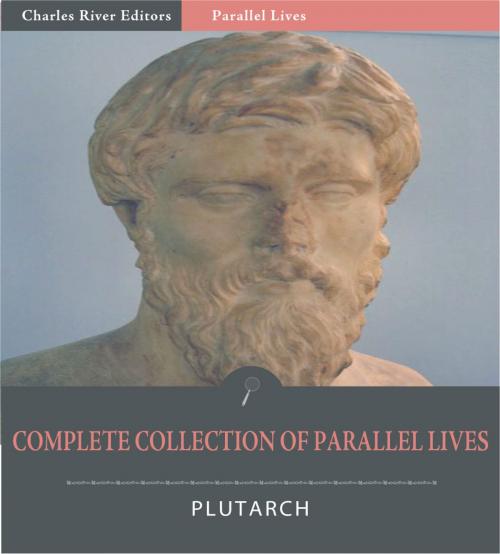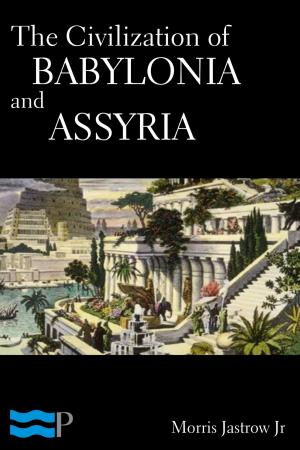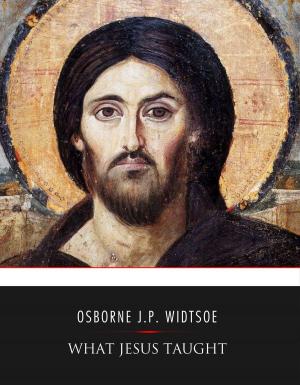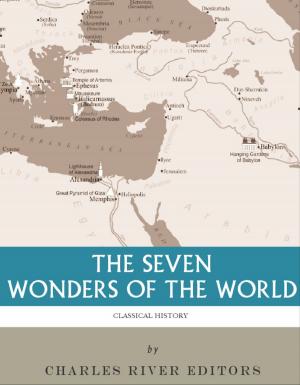The Complete Collection of Plutarchs Parallel Lives
Nonfiction, History, Ancient History, Rome, Biography & Memoir, Historical| Author: | Plutarch | ISBN: | 9781475312478 |
| Publisher: | Charles River Editors | Publication: | February 22, 2012 |
| Imprint: | Language: | English |
| Author: | Plutarch |
| ISBN: | 9781475312478 |
| Publisher: | Charles River Editors |
| Publication: | February 22, 2012 |
| Imprint: | |
| Language: | English |
Plutarch, later named, on his becoming a Roman citizen, Lucius Mestrius Plutarchus, c. 46 120 AD, was a Greek historian, biographer, essayist, and Middle Platonist known primarily for his Parallel Lives and Moralia.Plutarch lived most of his life at Chaeronea, and his duties as the senior of the two priests of Apollo at the Oracle of Delphi (where he was responsible for interpreting the auguries of the Pythia) apparently occupied little of his time. He led an active social and civic life while producing an extensive body of writing, much of which survived. By his writings and lectures Plutarch became a celebrity in the Roman Empire. At his country estate, guests from all over the empire congregated for serious conversation, presided over by Plutarch in his marble chair. Many of these dialogues were recorded and published, and the 78 essays and other works which have survived are now known collectively as the Moralia.Plutarch's best-known work is the Parallel Lives, a series of biographies of famous Greeks and Romans, arranged in pairs to illuminate their common moral virtues and vices. The surviving Lives contain 18 pairs or comparisons, each with one Greek Life and one Roman Life. Some of the Lives, such as those of Heracles, Philip II of Macedon and Scipio Africanus, no longer exist; many of the remaining Lives are truncated, contain obvious lacunae or have been tampered with by later writers. Extant Lives include those on Aristides, Pericles, Pompey, Julius Caesar, Cicero, Cato the Younger, Mark Antony, and Marcus Junius Brutus.Plutarch also wrote a series of biographies, including the biographies of Demetrius, Pyrrhus, Agis and Cleomenes, Aratus and Artaxerxes, Philopoemen, Camillus, Marcellus, Flamininus, Aemilius Paulus, Galba and Otho. This edition of Plutarchs Complete Collection of Parallel Lives is specially formatted with a Table of Contents and is illustrated with hundreds of illustrations depicting the individuals that were the subject of Plutarchs Parallel Lives, including:- Mark Antony and Demetrius- Demosthenes and Cicero- Brutus and Dion- The Gracchus Brothers and Agis and Cleomenes- Pompey the Great and Agesilaus- Sertorius and Eumenes- Crassus and Nicias- Lucullus and Cimon- Lysander and Sulla- Philipoemen and Flamininius- Cato the Elder and Aristides- Timoleon and Aemilius Paulus- Alcibiades and Coriolanus- Pericles and Fabius Maximus- Solon and Publicola- Theseus and Romulus- Numa and Lycurgus
Plutarch, later named, on his becoming a Roman citizen, Lucius Mestrius Plutarchus, c. 46 120 AD, was a Greek historian, biographer, essayist, and Middle Platonist known primarily for his Parallel Lives and Moralia.Plutarch lived most of his life at Chaeronea, and his duties as the senior of the two priests of Apollo at the Oracle of Delphi (where he was responsible for interpreting the auguries of the Pythia) apparently occupied little of his time. He led an active social and civic life while producing an extensive body of writing, much of which survived. By his writings and lectures Plutarch became a celebrity in the Roman Empire. At his country estate, guests from all over the empire congregated for serious conversation, presided over by Plutarch in his marble chair. Many of these dialogues were recorded and published, and the 78 essays and other works which have survived are now known collectively as the Moralia.Plutarch's best-known work is the Parallel Lives, a series of biographies of famous Greeks and Romans, arranged in pairs to illuminate their common moral virtues and vices. The surviving Lives contain 18 pairs or comparisons, each with one Greek Life and one Roman Life. Some of the Lives, such as those of Heracles, Philip II of Macedon and Scipio Africanus, no longer exist; many of the remaining Lives are truncated, contain obvious lacunae or have been tampered with by later writers. Extant Lives include those on Aristides, Pericles, Pompey, Julius Caesar, Cicero, Cato the Younger, Mark Antony, and Marcus Junius Brutus.Plutarch also wrote a series of biographies, including the biographies of Demetrius, Pyrrhus, Agis and Cleomenes, Aratus and Artaxerxes, Philopoemen, Camillus, Marcellus, Flamininus, Aemilius Paulus, Galba and Otho. This edition of Plutarchs Complete Collection of Parallel Lives is specially formatted with a Table of Contents and is illustrated with hundreds of illustrations depicting the individuals that were the subject of Plutarchs Parallel Lives, including:- Mark Antony and Demetrius- Demosthenes and Cicero- Brutus and Dion- The Gracchus Brothers and Agis and Cleomenes- Pompey the Great and Agesilaus- Sertorius and Eumenes- Crassus and Nicias- Lucullus and Cimon- Lysander and Sulla- Philipoemen and Flamininius- Cato the Elder and Aristides- Timoleon and Aemilius Paulus- Alcibiades and Coriolanus- Pericles and Fabius Maximus- Solon and Publicola- Theseus and Romulus- Numa and Lycurgus















